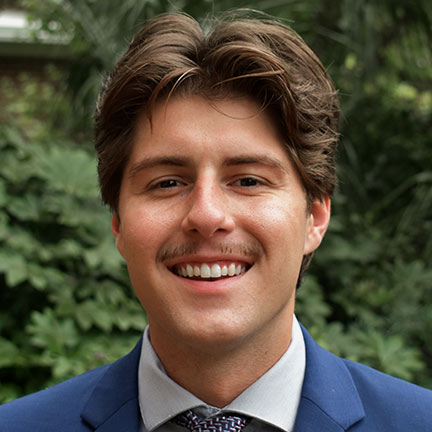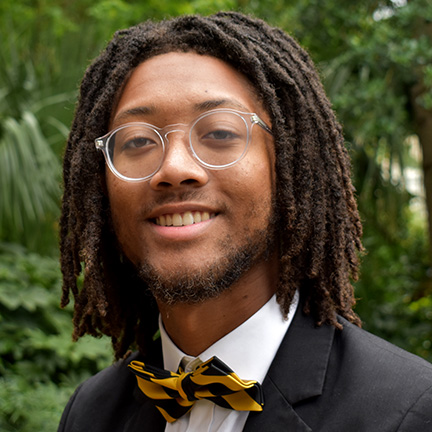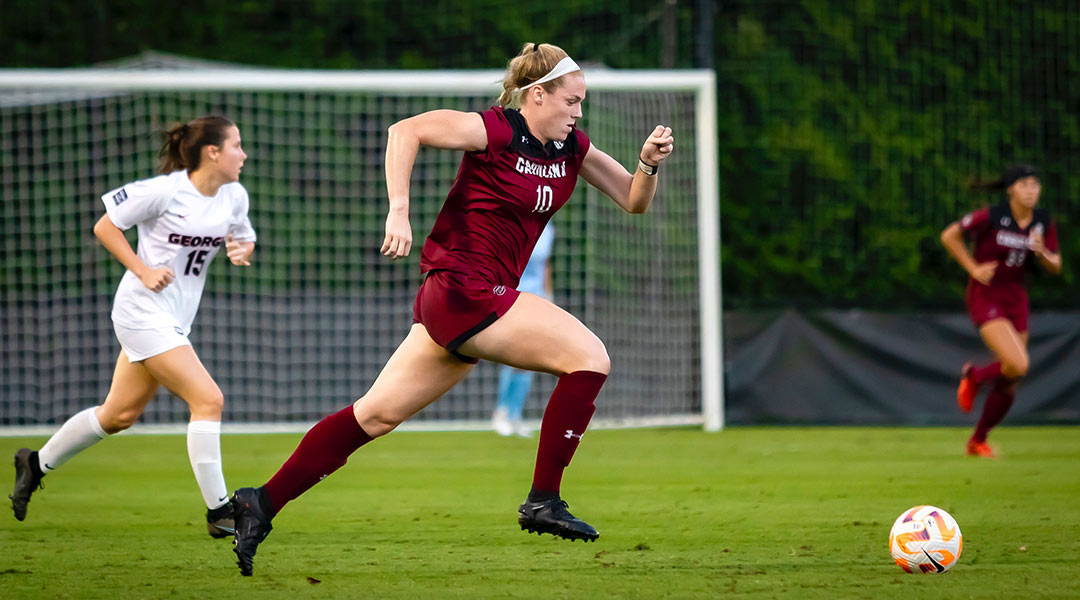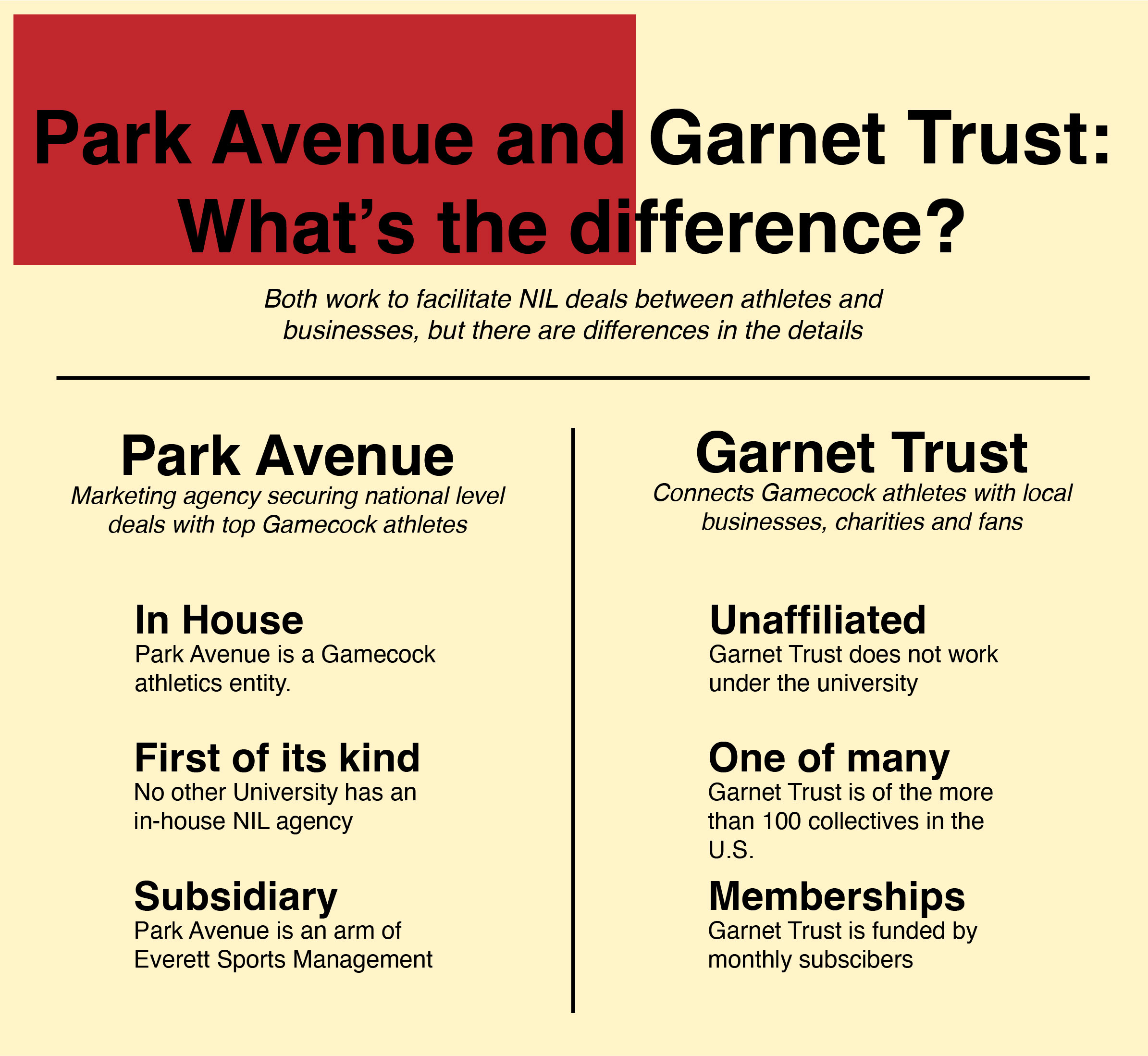Garnet Trust, an NIL collective, says women’s soccer player Cat Barry is one of their flagship athletes. (Photo courtesy of Caroline Barry)
College athletes now are making money through athletics, and USC is leading the way in the underdeveloped landscape.
NIL programming — using organizations that facilitate NIL deals to get Gamecock athletes a paycheck — is facilitating the cash flow, said Hillary Cox, director of NIL programming at South Carolina.
“We’re still just trying to understand it,” Cox said of the constantly changing rules. “There’s a lot of things, a lot of questions that we still have that we don’t have answers to.”
In July 2021, the NCAA adopted a policy allowing college athletes to profit from their name, image and likeness, or NIL, for the first time. It allows student-athletes to profit off things such as the sale of jerseys with their names on them, endorsement deals and autograph signings — all things that were outlawed before the policy went into effect.
Right now, NIL programming comes through either exclusive, school-affiliated agencies or independent, market-oriented collectives.
USC has both.
PARK AVENUE
Park Avenue is South Carolina’s NIL agency. The agency is a subsidiary company of sports management firm Everett Sports Marketing and is partnered exclusively with USC for two years.
The role of Park Avenue is to provide “NIL deal positioning and procurement, management, as well as creative and executional elements to elevate the brands and marketability of their student-athletes,” according to the ESM website.
ESM traditionally manages athletes in professional sports but partnered with USC to make a college-level management company. Cox said it is the first of its kind.
“No other school has one,” Cox said. “We paid a lot of money to bring in a marketing firm to basically have employees that are dedicated to our athletes.”
She couldn’t give exact numbers, but said that the university is on pace to profit from the creation of Park Avenue
GARNET TRUST
Jeremy Smith is the operations director of Garnet Trust, a collective that works with USC. He defined a collective as an organization made up of a group of people that facilitate NIL deals.
Such groups have members — similar to a booster club — who pay a monthly subscription to get exclusive media content from athletes.
Smith said Garnet Trust works with a larger pool of athletes, including lesser-known ones — even ones on partial scholarships.
Garnet Trust is the largest collective USC has worked with, and Smith said it works as a bridge between companies and Gamecock athletes. He said they make efforts to get money to athletes who need it, such as ones who need it as a form of financial aid.
“Maybe they don’t have a full-ride scholarship, maybe they’re paying another $30,000 a year to come to South Carolina,” Smith said. “I might go find a company that will help facilitate a marketing initiative for them.”
Unlike Park Avenue, Garnet Trust is not officially partnered with South Carolina. They consult with USC when making a deal, but Smith said the university does not tell them “what to do and when to do it.” Instead, they create relationships with coaches and players.
CAT BARRY
One of Garnet Trust’s most successful stories is Gamecock Women’s Soccer Forward Cat Barry. While other NIL programs prioritize football and basketball players, Barry was the first female athlete to work with Garnet Trust.
“They’ve done well to keep us in mind and not overlook the female athletes and other sports beyond like football and basketball, which is one of the things I really appreciate about them,” Barry said.
She said Garnet Trust does a great job of establishing business connections with student-athletes.
“I’ve been talking to Jeremy over the last few months, throughout our season about continuing to find opportunities for myself and other players on my team,” Barry said
She said the most important element of the NIL law is being able to brand herself as a USC athlete — something outlawed in the past by NCAA eligibility rules.
“We just had to be so careful before about everything we were doing, even if it was like 100% unintentional,” Barry said.
She said previously, when branding as a Gamecock athlete was prohibited, team members would host summer soccer camps. Hosting the camps posed the threat of having their eligibility revoked.
“You couldn’t say that you were a USC athlete if you were advertising yourself,” Barry said. “Now, you can leverage that.”
Barry said that while scholarship money covers academic costs such as tuition and fees, the money from Garnet Trust and other NIL programs help athletes afford everything else.
“(Scholarship money) doesn’t cover the money you need for, you know, your family’s Christmas gifts or gas money or, like, extra food and snacks for your apartment,” Barry said. “So it definitely helps bridge that gap.”
As for the future of NIL at USC, Barry said the fans have helped South Carolina get a head start by contributing to collectives like Garnet Trust.
“I think South Carolina is really setting the standard for a lot of other schools,” Barry said. “South Carolina fans are truly like no other. And I think they’ve stepped up with NIL in a way that is better than we could have ever imagined.”
ABOUT THE JOURNALISTS

Noah Watson
Noah Watson is a senior sports journalism major at the University of South Carolina. He looks for the obscure side of sports, focusing on the fun. He has covered sports for the student-run Daily Gamecock and WACH FOX 57. His dream job is to make sports documentaries.

Jayden Simmons
Simmons is a senior journalism major at the University of South Carolina with an interest in sports media. He writes for the Boston-based sports media company, LFG Sports covering fan-related sports topics such as college rivalry culture. Simmons is from Goose Creek, S.C., and is an aspiring author with an interest in sports fiction. He also writes music and poetry. Simmons is a member of Alpha Phi Alpha Fraternity, Inc. and the National Association of Black Journalists.



